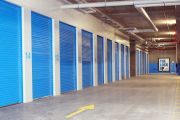
The next three property shortages have already started
As the chief executive of the $80 billion property giant Charter Hall, David Harrison doesn’t have a direct stake in the crisis gripping Australia’s housing sector; it’s not a part of the market that Charter Hall plays in.
But Harrison is in no doubt as to where it’s going.
“If they call it a crisis now, God knows what they’re going to call it in five or 10 years,” he tells Chanticleer at the group’s Sydney headquarters.

For Harrison, the equation in housing is simple. While demand continues to grow – even restricting population growth via immigration cuts won’t make much of a difference to the underlying demand picture, he argues – the required boost to supply simply isn’t going to arrive because high construction costs and interest rates have crushed the confidence of developers.
The best hope, Harrison says, lies in densification of existing middle-ring suburbs. But even if we can get the approvals and zoning decisions right, he worries supply won’t come through “because no one can see the merit in doing construction and development”.
And this isn’t just a problem in housing. Harrison, who says he’s suggested to the Reserve Bank governor that his portfolio covering 2000 tenants gives him a better real-time read on the economy than the central bank, sees a similar crunch coming across the commercial property sector, as high interest rates, high inflation and a lack of certainty in government policy weighs on activity across the economy.
“Put all that together, you’ve got a pretty anaemic level of confidence in capital investment, generally,” he says. And property giants like Charter Hall are not immune.
“It’s very difficult for us to stack up development, and we’re not alone.”
Harrison’s team can already see the seeds of the next property shortages being sown.
Ben Ellis, CEO of Charter Hall’s retail division, which focuses on convenience retail – think neighbourhood shopping centres anchored by supermarkets and petrol stations – says Australia is already clearly undersupplied for retail property.
“We’ve got less than one square metre of retail space per capita, which is less than half the US and 50 per cent below Canada and the UK,” Ellis says.
There are two issues at play here: a lack of available land for retail space, particularly in those areas that governments want to see densified, and, once again, high construction costs. Harrison says the current rollout of new stores by Coles and Woolworths is as slow as he’s seen in his 37 years in the sector.
The head of Charter Hall’s industrial and logistics division, Richard Stacker, says conditions have normalised in his sector after the pandemic sent rents and valuations through the roof. But he remains confident in the long-term outlook.
The steady drumbeat of population growth, the ongoing growth in e-commerce and the push to automation will grow demand, while supply will be constrained by high construction costs – “If you bought land more recently over the last couple of years at full price, it’s going to be very hard to develop those sites” – and the slow rollout of infrastructure such as roads, water and power.
Even in the much maligned office sector, where valuations have fallen between 20 per cent and 30 per cent, there are signs of supply issues emerging. Charter Hall’s office boss Carmel Hourigan says that while there are plenty of older B-grade and C-grade buildings, environmentally conscious tenants (led by the federal government) will increasingly find themselves scrapping over a very small pool of space in the prime financial districts of Australian cities, particularly in Sydney.
Of course, the prospect of multiple property shortages has a silver lining for Harrison and Charter Hall investors, who have seen the group’s share price rise 30 per cent this calendar year.
“Ironically, for us in real estate with large existing portfolios, this all creates a pressure cooker on rents and eventually existing asset values go up. There’s not new supply, but the net population growth drives a multiplier for demand in all sectors.”
It’s a reminder, Harrison says, that while we’d all like a world with lower inflation and interest rates, inflation is actually good for hard assets like property because “the replacement cost of real estate is so far above existing values”.
Of course, the prospect of a worsening housing crisis being compounded by shortages in the retail, office and industrial sectors is not great news for the country. It’s another great example of the short-term/long-term dilemma described by Telstra chief financial officer Michael Ackland, whereby the focus on inflationary pressures is effectively crowding out the sort of investments that unlock prosperity and productivity over the coming decades.
Giving the business community the confidence, settings and certainty to make decisions and investments only gets more urgent.











